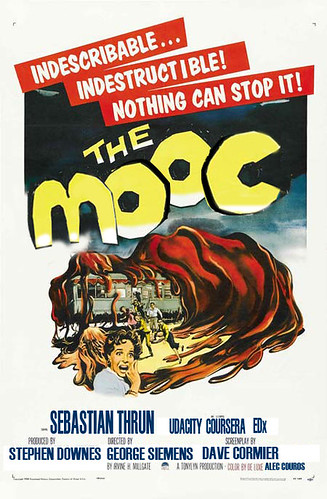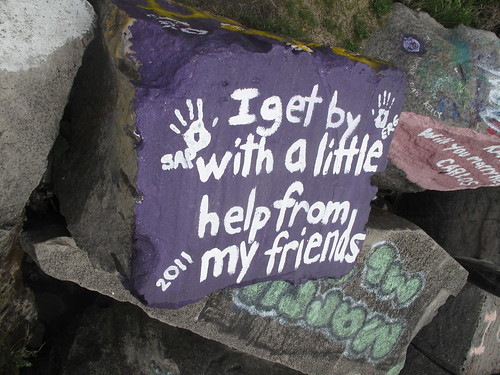
There is something of a tension at the heart of the relationship between academics and the institutions that employ them. Institutions want to have academics with a high profile and external recognition. But they also want them to do work for them, as they're paying the wage. Academics want to have a high profile and external recognition, but also recognise that a good proportion of their work may need to be for the institution in roles that don't attract much of this.
Usually this balance is fairly easy to maintain, but the problem is that much of the work involved in scholarship doesn't directly benefit the institution. Consider these examples:
- Examining PhDs
- Giving keynote talks
- Being external examiner on a course
- Sitting on project advisory boards
- Reviewing papers for journals
- Being an editor, or sitting on a conference committee
- Writing journal papers
Performing many of these can come under the type of work you need to do to stay current in your field (examining PhDs is a good way of being up on research I've found), but others less so. Giving the same keynote for the tenth time might help the individual do some networking, and could possibly lead to a joint research bid, say, but the direct benefit for the institution is rather tenuous.
As an aside these are also the type of 'glue' functions that keep scholarship functioning, and operate on an unspoken reciprocity basis - eg if you don't examine PhDs then you can't expect people to do the same for you. There is a strong element of game theory here. You could indulge (or an institution could demand that its staff indulge) in selfish behaviour. This might lead to gains for you, but only if others continue to be benevolent. If everyone opts for selfish behaviour then we get the familiar tragedy of the commons - the whole system becomes unsustainable because it would be foolish to be anything other than selfish.
When times are good, this tension is less evident. But when times are tough, and staffing levels low, then this tension comes to the fore - "you can't attend this committee meeting that you're now on, because you're in Cyprus giving a keynote? But you didn't attend the last one because you were in Edinburgh doing a PhD viva." Or, "you're teaching load has doubled, John has retired, can you take on his PhD students as well?"
Maintaining an external profile is still important to the individual (indeed, when job security is low, it becomes an increased priority as you may find yourself looking for a new post). So, how to do it when there are competing demands on your time? There are obviously lots of negotiations and ways of stressing academic credibility, etc which will vary from person to person and institution to institution. But part of the answer is also to engage in open scholarship.
This came to mind as I struggled to manage my own workload the other day (yes, time to break out the violins). In doing my workload planning for the year it became apparent that I was (as all good footballers say) committed 150%. We pretended this wasn't the case to make the figures fit, but it means there is no slack in my diary, and that's before new things such as FutureLearn come along.
I currently turn down about an invitation a week to speak at various events because I've invariably got meetings for the various OU projects I'm leading on already in the diary (ramp up the violins). I managed to write a paper before Christmas but I'm struggling to produce another one. It is a good paper I think, but I need 3 to 4 days uninterrupted to write it and put the data into order. Traditional scholarship is just very time consuming. This is a good thing, it means the outputs are (hopefully) of a high quality.
But you may get squeezed on this, and this is where open scholarship comes in. While I haven't managed to write my paper, I have managed to produce a couple of blog posts. I can do these in a lunch time, or on a Saturday morning when I'm trying to avoid watching James Martin misuse the word literally on Saturday Kitchen. MOOCs may play into this also, if your teaching load is increased, then making courses open at least gains some external profile (although, as I am learning, it does involve a lot more work too). The same might be true of presentations shared via YouTube or Slideshare.
So, the question that is usually asked of open scholarship type activities is "how do you find the time for all this extra stuff?" We may be seeing this inversed - how do you find the time for the traditional stuff?


